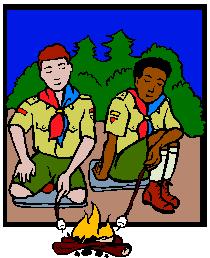 1. They are with adults who are at ease with them and who seem to enjoy them most of the time.
1. They are with adults who are at ease with them and who seem to enjoy them most of the time. 2. They are permitted to make mistakes which will not harm them unduly, and are permitted to live with adults who do not themselves pretend to be perfect.
3. Those about them believe in them and express confidence through words and through giving them freedom.
4. Those about them understand what they are trying to achieve and support and team with them in their endeavors.
5. Those about them permit them to express doubts, to raise questions, and to try their ow ideas.
6. They understand the limits of the freedom within which they can make decisions, and when this freedom in limited to the responsibility they feel able to carry at their stage of development.
7. Those about them deal with them with firmness and consistency.
8. Adults around them behave as adults and show what the adult way is like.
9. Those about them help than to succeed when they need help, but let them struggle when they are winning by themselves.
10. Those about them gear their expectancy of a child's behaviour to his capacity for that behaviour.
11. Those about them understand how they grow and develop, and provide motivation and opportunity for encouraging sound growth.
12. They feel strong within themselves, when they feel they are just the kind of person wanted by their family, their friends, their community, and nation.
13. There is an atmosphere of friendliness and warmth whether with adults or with children.
14. They meet actual life situations, emotionally charged, and deal with them successfully whether with or without adult help.
15. Their perfotmance expectancy is related to themselves and not to others.
16. They are interested in what they are doing for its own sake. They will be interested when it has meaning for them. Children forced to perform tasks in which they have no interest or understanding are not helped but are actually blocked. Those who attempt it are battling against human nature and will lose in the end.
This thought is summarized from "Understanding Boys" by Clarence G. Moser